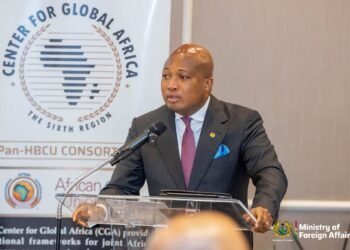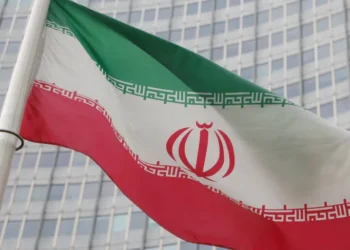The Minister for Energy and Green Transition, John Abdulai Jinapor, has revealed that Cabinet will soon receive a proposal to transition ministerial transport within Accra from fossil fuel-powered vehicles to electric vehicles (EVs). This is a bold policy move signaling Ghana’s deepening commitment to environmental sustainability and clean energy.
The initiative, which is to be piloted with ministers in the capital, forms part of the government’s broader energy transition framework and aims to reduce public sector fuel costs, limit urban pollution, and promote the adoption of green mobility.
“Transitioning to EVs is both an environmental decision and an economic one.
“Electric vehicles generally have lower operating costs than traditional fossil fuel-powered vehicles.”
John Abdulai Jinapor, Minister for Energy and Green Transition
Hon. Jinapor added, “This implies long-term savings for transport operators, reduced fares for commuters, and less exposure to volatile fuel import markets.”
The announcement came during the commissioning of a 60kW solar-powered EV charging station at the premises of the Energy Commission.

Developed under the Commission’s Drive Electric Initiative (DEI), the charging station is the latest in a growing line of government-backed interventions to stimulate Ghana’s EV ecosystem.
According to the Minister, the procurement of EVs for ministers will serve as a high-visibility demonstration of the state’s leadership in the transition to low-carbon transportation. The plan, he said, is to eventually extend the EV rollout to other public sector institutions and appointees.
“This is a signal that government is not only regulating the space but also walking the talk.
“It’s time we reduced our dependence on imported fuels and modernised our transport infrastructure.”
John Abdulai Jinapor, Minister for Energy and Green Transition
The EV charging station was described as a critical enabler for electric vehicle adoption in urban areas, where concerns about charging infrastructure and reliability have slowed uptake. Its solar integration also ensures that charging remains climate-friendly and cost-efficient.
Energy Commission Charts EV Market Structure

Acting Executive Secretary of the Energy Commission, Eunice Biritwum, praised the development as a milestone in Ghana’s energy transition efforts. She underscored the Commission’s dedication to creating an enabling environment for the growth of the EV market.
“The three core objectives of the electric vehicle charging station are to drive the green mobility agenda, highlight innovation through partnerships, and inspire broader action.”
Mrs. Eunice Biritwum, Acting Executive Secretary of the Energy Commission
The Commission has already made significant strides in EV policy development. Since 2021, it has hosted Ghana’s first E-Mobility Conference and Exhibition, and in 2022 convened the first public EV charging forum.
More recently, it completed a Baseline Study on EV Usage and a Market Opportunity Study on EV Charging Stations in Ghana, which are expected to guide both public and private sector investment decisions.
A Draft Regulation on Electric Vehicle Charging Stations and Battery Swap Systems has also been completed, aimed at ensuring safety, standardisation, and interoperability across Ghana’s emerging electric mobility value chain.
The EV strategy aligns closely with Ghana’s updated Nationally Determined Contributions (NDCs) under the Paris Agreement, which include commitments to promote low-emission transportation systems.

Ms. Biritwum also disclosed that the Commission is working closely with the Ministry of Transport to explore broader deployment strategies, including the electrification of public transport systems and partnerships with fleet operators.
“This initiative is not only about clean energy but about transforming the way we move, live, and interact in our cities.
“The EV transition is expected to modernise Ghana’s public transportation system and significantly enhance air quality in urban areas.”
Mrs. Eunice Biritwum, Acting Executive Secretary of the Energy Commission
The Energy Commission urged transport unions, ride-hailing companies, private sector investors, and local governments to engage with and support the national EV agenda.
The hope is to foster innovation and unlock investment across the entire green mobility value chain—from assembly and distribution to servicing and infrastructure.
As Ghana ramps up its efforts to decarbonize transportation, the introduction of electric vehicles for government ministers sends a strong signal of intent.
The integration of EVs into the public sector not only reinforces the country’s climate commitments but also paves the way for a resilient, sustainable, and economically viable mobility future.
READ ALSO: Mastercard and Access Bank Unveil Innovative Age-Segmented Card to Empower Ghana’s Youth


















